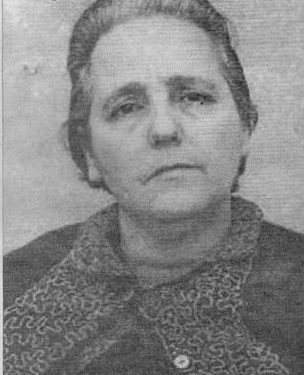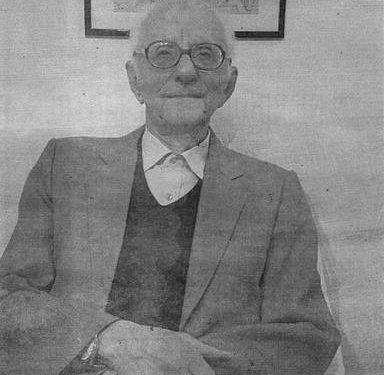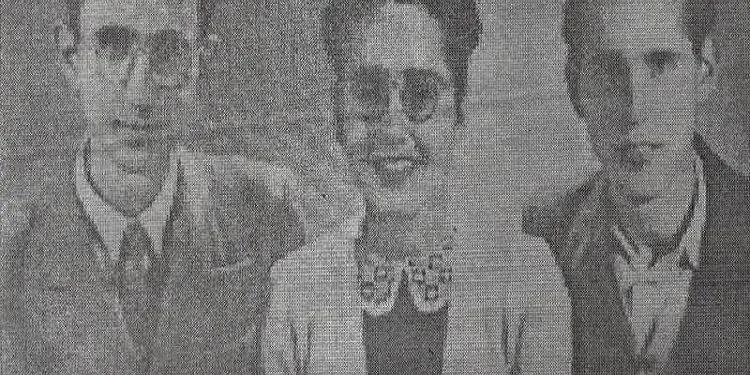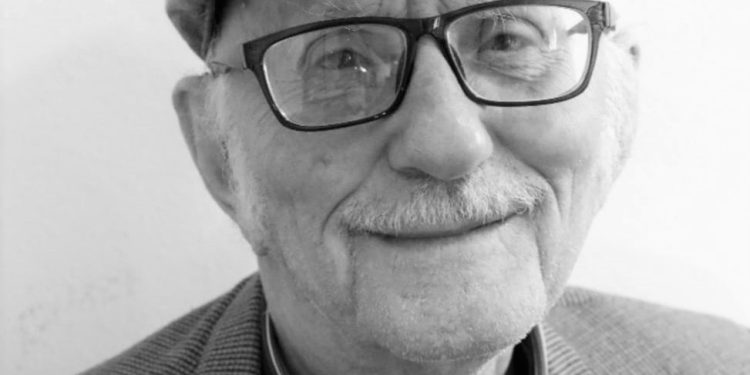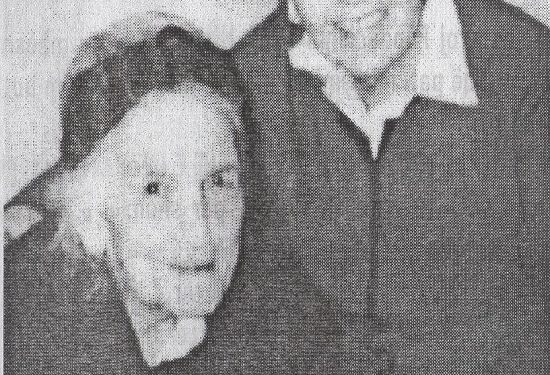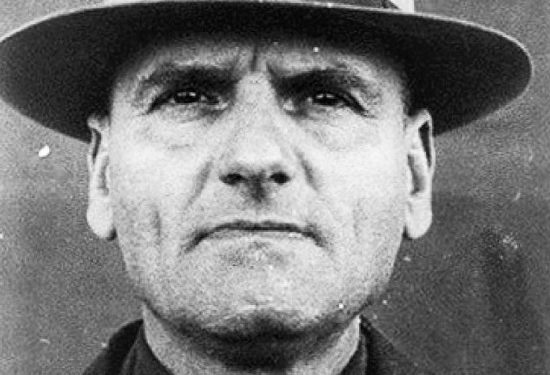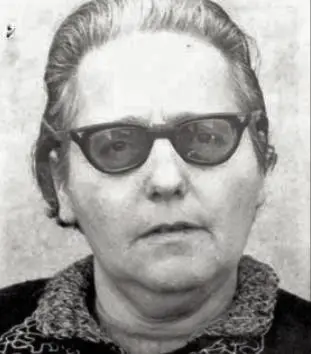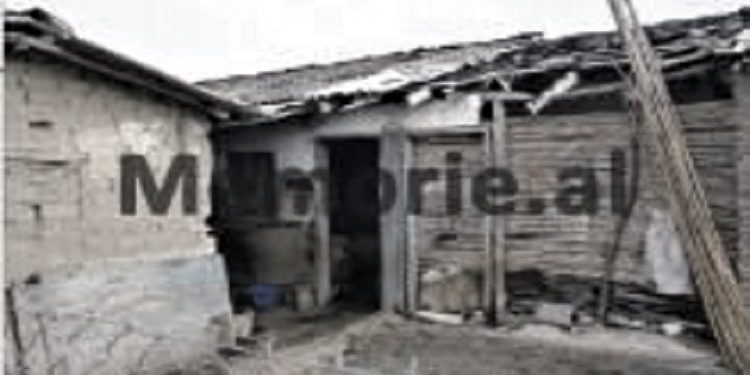By Ani Jaupaj
Memorie.al / On the top floor of a prefabricated building, the painter Lekë Tasi, does not have the right lighting, where he has chosen to be his painting corner, on the adapted, but regular table like no one else’s. No matter where you turn it, the lighting will be the same, never enough! However, he does not complain, he always has a smile that even when he shows his former life, the years of exile in the village of Grabjan in Lushnja, you get the impression that you are not dealing with severe suffering; this is the skill of a gentleman! Lekë Tasi, born in Athens in 1929, the son of Koço Tasi, parliamentarian, government prisoner during the dictatorship period, while Leka himself, a very talented cellist, who had the opportunity to work first at Radio, the Philharmonic and later at In 1975, he finished the Opera Theater together with his family, exiled to the village of Grabjan in Lushnja.
Years have passed since then. He put all the memories of those times, especially the confessions of his sister, who was imprisoned for three years, in the book “The robber at the foot of the hills”. Tefta’s rare testimonies were so important, but also the way Leka narrated them, sticking to every detail, no matter how painful it was. For him, this is the most important part of the book.
For several years, Tefta Tasi no longer lives. Even after years when the family returned to Tirana, she lived with her mother, devoted herself to her and the peace she had been missing all those years. It was not always easy for him to share his memories, especially when he remembered the rains, the slush and mud where he had to work…! From his family, as the youngest, only Lekë Tasi escaped prison, together with his mother. Detailed, I bring to the readers today, the memories of my sister…! One of the most important testimonies of that period, 1979-’82, in one of the most difficult camps of the time.
Mr. Tasi, throughout the book “Robber at the foot of the hills”, you highlight a controversial nature of Tefta. Although, your fate was known in some way, were there any episodes that show opposition to the system?
We always remembered and laughed in the family when, one day, when he was out in New Tirana, Tefta inadvertently entered a street of the “Block” of the leaders. The guards of course stopped him, pointed their rifles at him, stunning him in place. However, after that nothing happened similar to what would happen to him later…!
What happened to him later?
We were interned as a family in Grabjan, Lushnja, while some time later, Tefta was imprisoned. When they separated him from us, on the day of his arrest, they took him to the office of the People’s Council. There, the investigator, Skënder Korriku, told him: “In the name of the people, you are under arrest!”, and they put the bars on him. They took him to the investigator’s office and after a few minutes the head of the Branch entered, who called him an enemy.
Since she objected, he went out, ordered her to be abused, and left. The orders for it had already been given. He was isolated in a dungeon; it was insulated with boards, without a mattress. There were three worn, see-through, and dusty blankets. He folded one in four to lie down, covered himself with the other two!
Did you have a chance to meet him?
Ylli went more often than the rest of us, but at first, even he wasn’t allowed. I even remember an episode in the summer, when he went to take food to him, after it had rained a lot and his bike got stuck in the mud. The rules for him were strict. The policeman had informed him that his head was put out of the window and during the day, he was not allowed to lie down or sit down. Isolation in the dungeon, in Kosova of Dumre, lasted three months and three days. The rules there were more severe than in any other district. From waking up at six o’clock in the morning until 10 o’clock in the evening, the prisoner had to stand.
Tefta, to measure time, made a calendar on the wall, scratching the plaster. This matter became a big deal later, but Tefta was never afraid of anything, nor did she feel anxiety. Tefta called the first 25 days of the dungeon as the most peaceful period of her life. In four years of internment, the messy jobs, the straits, the queues in the shops, had become a burden and he was suddenly found in the complete solitude of the cell.
Has he told you about physical abuse?
No, despite the life that was in all senses difficult, she has not shown such mistreatment, despite her stubbornness! Among the guards in the dungeon corridors were Gezimi and Shyqo, who represented the most extreme types. The first would open the counter, observe for a few seconds and report on what he saw. One day, because her head hurt and she couldn’t sit down, Tefta leaned her forehead against the wall. With the jingle of the counter latch, she didn’t change position as he expected. She also had to wash the bowls of the detainees every morning…!
What happened to him during the investigation period?
The questioning began 10 days after the arrest. The investigation was conducted by Zamir Stefani. As an introduction to the presentation, what he thought about the arrest, Tefta had said: “I thought it was my turn, you had taken it in turn…! You will find the faults that I do not have, to punish me and the decision will come from the ministry”. The charge for him was “agitation and propaganda”, although completely useless. The next day, the real investigation had begun.
The procedure was by primitive means. The investigator asked him questions and then wrote the answer by hand. At the end of the session, the minutes would be signed by the investigator and Tefta did this without reading. Firstly, because he did not think that the investigator needed to add anything other than what he was saying, secondly, because his illegible calligraphy prevented him. However, when the complete record was read in court, some things emerged that he had not told the investigator. He denied them and then the judge told him: “You signed them…”!
What were the charges against him?
The accusations were completely ridiculous. They blamed him for insulting the store’s apples, which supposedly weren’t even for pigs, such slander. Tefta objected to him: “Why curse longing, when boredom came from people?” In general, all the accusations were ridiculous, so much so that Tefta even mocked the investigator, saying: “How come you didn’t find something serious, but apples and oranges”?!
According to the second accusation, she had refused to make a draft for Zyhdi’s son, the internee from Mokra, because the topic was: “Comrade Enver’s visit to Gjirokastër” and had told the student “go away, we got all these from him” bad.”
Another accusation: “You told Donika that you are unhappy and that you haven’t seen a white day since the communists came.”
The fourth accusation was related to the word he said to the person in charge: “I honor the deportation”!
Very soon the trial was held, after which he was sentenced for 8 years and of these 8 years he served only three.
Life there was quite difficult. They were fed a thin, fat-free soup, while we had to bring only sweet food from home, nothing salty. She also fell ill and in this case they took a hostile attitude towards her. Then, the punishment in the dungeon, in the camp, was a humiliating measure that was given only in cases of serious breach of discipline.
Unlike the ordinaries, which were young and black, political women, being elderly, generally did not lend themselves to such a reduction. They did not fight, they did not oppose, and they worked regularly. However, Tefta was admitted there twice, both times sick. The reason was for not going to work, something that many others did not notice. In addition, they exposed him for not fulfilling the norm, although they saw him working without rest. As well as these, there were plenty of other bespoke teases.
What did she tell you, how was her life in the camp?
After months of isolation, Tefta was taken to the Women’s Re-Education Camp. The first sight he saw there was sad, clothed and unclothed women, extreme misery. Weakened in body and spiritually weak from isolation, this sight was the greatest misery for Tefta, so much so that she cried every time she showed it. The camp consisted of two three-story hostels, joined by a one-story canteen.
In the first lived the political convicts, seventy in total, in the other, 500 ordinaries. Half of them worked in the fields. The politicians’ bedroom was on the second floor. It consisted of two halls with 30 beds each and a smaller one with 10 beds for the Soviets. Tefta was taken by her friends to a bed of a woman who was hospitalized.
Ordinaries circulated freely in the space of politics, but later, after a letter of complaint to the ministry, a dividing wall was found between the courtyards, but even in this case they quarreled and insulted each other. In the camp, there was a Re-Education Council made up of 20–30 women of “good” political background, almost all of them ordinary, except for four politicians.
The council had a young president. When the ward was lined up, it sat next to the commander or officer of the guard, held keys and gave orders. She had been a saleswoman; she came from a communist family. The members of the council lived a comfortable life, they went outside the camp, they had no uniform, they ate in the kettle alone, the kitchen cooked the best things for them, and they bathed every day…
This council was the body that connected the prison staff with the command. Upon returning from work, the brigadier and the normist entered the Council room, where they reported not only the volume of work done, but also the events of the day. In addition to these bodies, the command also consisted of a wide network of spies, working and not working. Information was collected by one man for a group of 3-4 women and forwarded upstairs.
In the camp where they lived, they slept in beds, had water, and could wash in the yard, cook, so it was called a prison with “perspective”. But the treatment and the demand for work were very tight. They worked all the agricultural processes, canals, rugs, plowing, different harvests; they made the road on foot, in the mud in the winter, in the dust, in a distance of 5 kilometers, with up and down hills, with footpaths.
They worked even in the rain; they only turned them back if the rain continued for hours. For Tefta, the most exhausting thing about prison was the road in winter. There were no boots, the mud stuck to them, they slipped, fell, sank into the mud, and with all this, they had to be protected at all times by the guards.
Tefta told you about camp life in detail. What was a typical day like at the Women’s Reeducation Camp?
In winter, waking up was at 5:00 in the morning. Sundays at 6:00. They put on their work clothes, made their beds, took the food prepared for dinner, with sugar and curd, put them in the trunk and lined up the four brigades, the count was made and they left at 6:00.
It was very lucky to have a friend among those staying in the camp, because when you came home from work, you would find a bucket of water warmed by the sun. In the bedrooms, the beds on the side of the windows were lined up like the pins of a comb, while on the opposite wall; they were in a continuous row. They were iron and double, bottom and top. Tefta was assigned to the bunk above.
The food in the camp, for those coming from the dungeon, looked well, but it got boring. All dishes were soup-like, without fat. One month a year, there was only pasta, breakfast and lunch. Dinner was always tea. Those who worked should, in principle, eat meat twice a week, but this never happened.
The meat was boiled, but not distributed; kitchen uniforms, the best parts went to the female party members, who belonged to the theft and murder section. There were two boilers, one for working women, and the other for the unemployed.
The cauldron of the second was nothing but water; therefore those women who had no help from the family were automatically degraded. I was not in the camp, it reached the extremes. Tefta needed food, and if she couldn’t cook, she ate sugar because it gave her strength. To recover, we gave her vitamin B-12, she did better.
After three years of prison, what happened to him?
First, he needed to lie down and rest. It never changed its nature, it continued the same. Tefta never married, after that she devoted almost all her time to her mother. They lived together…! Later, he wrote some fairy tales for children, but there was no noise about them.
It was very fortunate that she managed to tell me her memories and that I managed to get them correct, as a testimony of the time and the inhuman tortures, which are not often conveyed by women prisoners also because of the bad conditions in them which they got out of prison! Memorie.al




